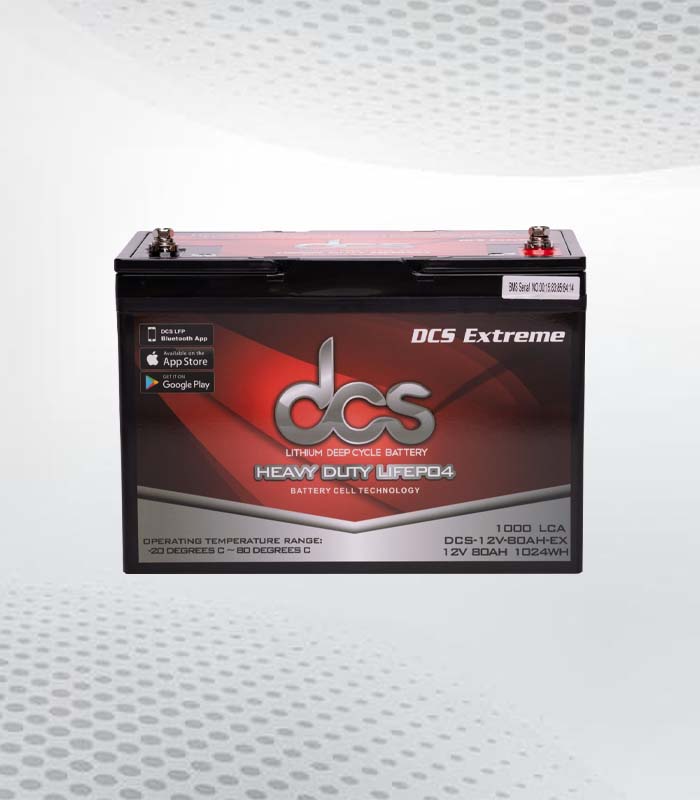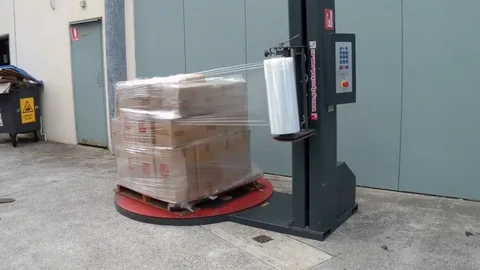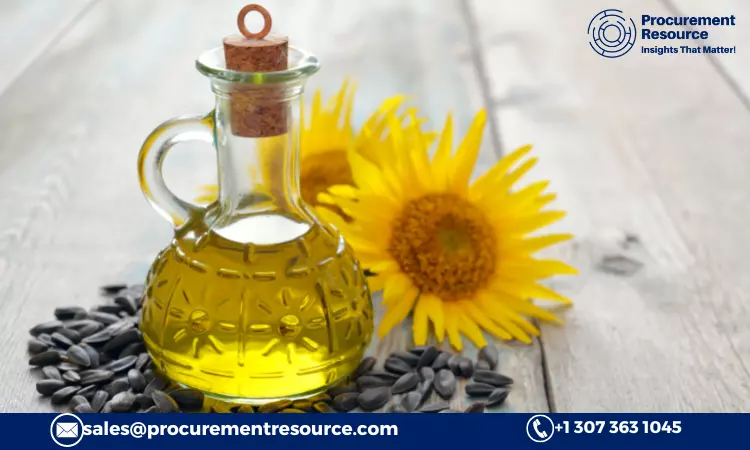Regarding power solutions, the 12v 80ah Lithium Ion Battery stands out as a versatile champion. Whether you’re powering an electric vehicle, running solar energy systems, or supporting recreational vehicles, these batteries have surged in popularity over recent years. Their lightweight design and high energy density make them a favourite among enthusiasts and professionals. This blog post will investigate the science behind their longevity and efficiency.
How Lithium-Ion Batteries Work: A Technical Overview
Lithium-ion batteries operate on a fascinating principle of electrochemistry. At their core, they consist of three main components: anode, cathode, and electrolyte. The anode is typically made from graphite, while the cathode often includes lithium compounds. Lithium ions move from the cathode to the anode through the electrolyte during charging.
When you use energy stored in these batteries, the process reverses. Lithium ions travel back to the cathode, releasing electrical energy that powers your devices or systems. This movement creates a flow of electrons in the external circuit—essentially generating electricity for various applications.
One key feature of lithium-ion technology is its ability to hold more charge than traditional battery types while being lightweight and compact. This efficiency makes them ideal for modern demands across industries like automotive and renewable energy solutions.
Factors Influencing the Longevity of Lithium-Ion Batteries
Several factors are critical in determining the longevity of lithium-ion batteries, particularly the 12v 80ah variants. One significant aspect is the quality of materials used in manufacturing. High-quality components can withstand more cycles and offer better performance over time.
Another vital factor is how these batteries are charged and discharged. Frequent deep discharges can stress the battery, significantly reducing its life span. To extend usage periods effectively, it’s essential to maintain optimal charging practices.
Environmental conditions also influence battery longevity. Exposure to extreme temperatures—either high heat or cold—can degrade internal chemistry rapidly. Keeping your lithium-ion battery within recommended temperature ranges ensures it remains efficient for longer.
Charging Cycles: Maximizing Battery Life through Proper Management
Charging cycles play a crucial role in the lifespan of your 12v 80ah lithium-ion battery. Each cycle encompasses charging and discharging, meaning how often you use and recharge the battery directly impacts its longevity. Understanding this relationship can help you make informed decisions about usage patterns.
Aim for partial charges rather than complete cycles whenever possible to maximise battery life. Lithium-ion batteries thrive on shallow discharges—frequent top-ups can be more beneficial than letting the charge drop significantly before recharging.
Additionally, avoid overcharging your battery, as it can lead to heat buildup, which is detrimental to longevity. An intelligent charger with built-in protection features ensures the battery receives just what it needs without exceeding optimal levels.
Temperature Effects: The Impact of Heat and Cold on Li Ion Battery 12v 80ah Performance
Temperature plays a crucial role in the performance of a Li Ion Battery 12v 80ah. High temperatures can accelerate chemical reactions inside the battery, leading to increased energy output but at the cost of potential damage. Overheating may cause thermal runaway, which risks fires or reduced lifespan.
Conversely, low temperatures can be equally detrimental. Cold environments slow down the electrochemical processes within the battery cells. This diminishes capacity and efficiency, making it harder for your device to function optimally when it’s chilly outside.
Keep your lithium-ion batteries within their recommended temperature range to maintain peak performance. Using insulation for outdoor applications or avoiding extreme climates will help prolong their life and effectiveness. Storing them at moderate temperatures is critical to ensuring they deliver reliable power whenever you need it.
Discharge Rates: How Depth of Discharge Affects Longevity
The depth of discharge (DoD) plays a crucial role in the longevity of a 12v 80ah lithium-ion battery. It essentially refers to how much energy is drawn from the battery before it’s recharged. A higher DoD means more energy is used, which can lead to faster wear and tear on the battery cells over time.
Using only a portion of the available capacity can significantly extend the lifespan of your battery. For instance, keeping your discharges below 50% often results in extended cycle life compared to deeper discharges. This practice minimizes stress on the internal components, allowing them to function optimally for longer.
Understanding this balance between usage and recharge habits is critical to efficiency. Regularly monitoring how deeply you discharge your lithium-ion batteries helps ensure they perform well throughout their intended lifespan while maximizing their overall value.
Self-Discharge Rates: Understanding Energy Loss in Idle Batteries
Self-discharge is a crucial factor to consider when evaluating the efficiency of a 12v 80ah lithium-ion battery. This phenomenon occurs when the battery loses charge while not in use, leading to energy loss over time. Understanding self-discharge rates helps users manage their batteries more effectively.
Lithium-ion batteries typically exhibit lower self-discharge rates compared to other types, such as nickel-cadmium or lead-acid batteries. Generally, lithium-ion cells can retain around 95% of their charge after several months of inactivity. However, variations exist based on age and environmental conditions.
Factors like temperature and humidity also play significant roles in self-discharge rates. Higher temperatures can accelerate chemical reactions within the battery, increasing energy loss. Keeping your lithium-ion battery stored in optimal conditions ensures better performance and longevity during idle periods.
Battery Management Systems (BMS): Ensuring Optimal Efficiency
Battery Management Systems (BMS) are crucial in maintaining the efficiency of 12v 80ah lithium-ion batteries. These systems monitor vital parameters like voltage, current, and temperature to ensure optimal performance. By providing real-time data, a BMS can prevent issues before they escalate.
One significant function of a BMS is balancing the charge across individual cells. This helps avoid overcharging or discharging any single cell within the battery pack, prolonging overall battery life and enhancing safety during operation.
Moreover, advanced BMS features include state-of-charge (SOC) and state-of-health (SOH) monitoring. This information lets users make informed decisions about charging cycles and maintenance schedules, ensuring the battery remains reliable throughout its lifecycle while maximizing energy output for various applications.
Cycle Life vs. Calendar Life: What You Need to Know
Cycle life refers to the number of complete charge and discharge cycles a 12v 80ah lithium-ion battery can undergo before its capacity significantly degrades. Each cycle entails using the battery, charging it back up, and then discharging it again. For users focused on efficiency, understanding cycle life is crucial for planning how long their batteries will last in practical applications.
On the other hand, calendar life deals with time rather than usage. It measures how long a battery can function effectively regardless of whether it’s being used or not. Even if you don’t use your 12v 80ah lithium-ion battery often, age-related factors like chemical degradation still come into play.
Both aspects are vital when determining overall performance. A well-managed battery could have an extended cycle life while keeping an eye on calendar life to ensure you’re not left with reduced capacity due to time alone.
The Role of Chemistry: Comparing Lithium-Ion Variants for Longevity
The chemistry behind lithium-ion batteries significantly affects their longevity and performance. Different variants offer unique advantages, such as Lithium Iron Phosphate (LiFePO4) and Lithium Nickel Manganese Cobalt Oxide (NMC). LiFePO4 is known for its thermal stability and long cycle life, making it an excellent choice for safety and durability applications.
On the other hand, NMC batteries deliver higher energy density, which can be beneficial in space-constrained situations. However, they may not last as long as their LiFePO4 counterparts under certain conditions. Understanding these chemical differences helps consumers select the best battery variant based on specific needs.
Moreover, advancements in lithium-ion chemistry are continuously emerging. Researchers are exploring new materials to enhance efficiency while extending battery lifespans even further. This ongoing innovation is crucial for users seeking reliable power solutions without frequent replacements or maintenance concerns.
Impact of Usage Patterns: How Different Applications Affect Efficiency
The efficiency of a 12v 80ah lithium-ion battery is heavily influenced by its usage patterns. For instance, applications that demand high discharge rates, such as electric vehicles or power tools, can strain the battery more than lower-draw uses like solar energy storage. Each method of use contributes to how quickly the battery’s capacity diminishes over time.
Frequent deep discharges can significantly reduce the lifespan. However, if used intermittently in lighter applications—like backup power for small electronics—the lithium ion battery may thrive and yield longer service life. Understanding your specific energy needs helps tailor usage effectively.
Regular Maintenance Tips for Extending Lithium-Ion Battery Life
Regular maintenance can significantly extend the life of your 12v 80ah lithium-ion battery. Start by keeping the terminals clean and free from corrosion. Use a soft cloth to wipe away any dirt, dust, or grime that may accumulate over time. This ensures a tight connection and optimizes performance.
Next, always store the battery in a cool, dry place when not in use. Extreme temperatures can degrade batteries much faster than expected. Aim for moderate temperature ranges to maintain efficiency and longevity.
Charge the battery regularly, but avoid deep discharges whenever possible. Keeping it within a healthy state of charge helps prolong its lifespan. A little attention goes a long way in preserving your investment while maximizing power output when you need it most.
Cost-Efficiency: Analyzing Long-Term Savings with 12 Volt 80ah Lithium Battery
When considering the 12 Volt 80ah Lithium Battery, cost-efficiency is a significant advantage. Although the initial purchase price may be higher than traditional lead-acid batteries, the long-term savings quickly offset that expense. With a lifespan often exceeding ten years, these batteries require fewer replacements.
Moreover, lithium-ion technology charges faster and holds energy more efficiently. This means less time is spent connected to power sources, and energy consumption is reduced overall. Over time, users can notice lower electricity bills as they benefit from quicker charging cycles and decreased waste.
Maintenance also plays a crucial role in cost savings. Lithium-ion batteries generally demand less upkeep than their counterparts. There’s no need for regular water refills or equalization charges—simply monitor performance and enjoy efficiency without added costs or labor-intensive tasks.
Conclusion
Choosing a 12v 80ah Lithium Ion Battery can significantly impact your energy needs. With their advanced technology, these batteries offer remarkable longevity and efficiency for various applications. Their design caters to both everyday users and specialized industries. Proper management and understanding of charging cycles are vital for maximizing the life of your battery. You can ensure optimal performance by considering factors like temperature effects and discharge rates. Additionally, keeping an eye on self-discharge rates helps maintain practical usage.
FAQs
What is the typical lifespan of a 12v 80ah Lithium Ion Battery?
Generally, depending on usage and maintenance practices, you can expect a lifespan of 5 to 15 years.
How do I optimize charging for my lithium-ion battery?
To maximize performance, avoid fully discharging the battery before recharging. Use smart chargers equipped with features like trickle charging to prevent overcharging.
Can temperature fluctuations damage my lithium-ion battery?
Yes, extreme hot and cold temperatures can significantly affect performance and degrade the capacity over time. It’s crucial to store batteries at recommended temperatures for optimal longevity.




